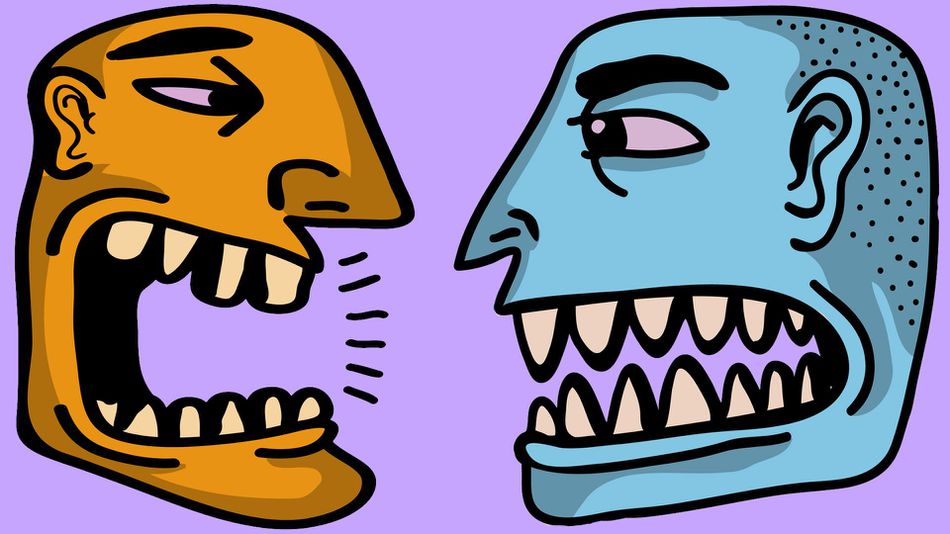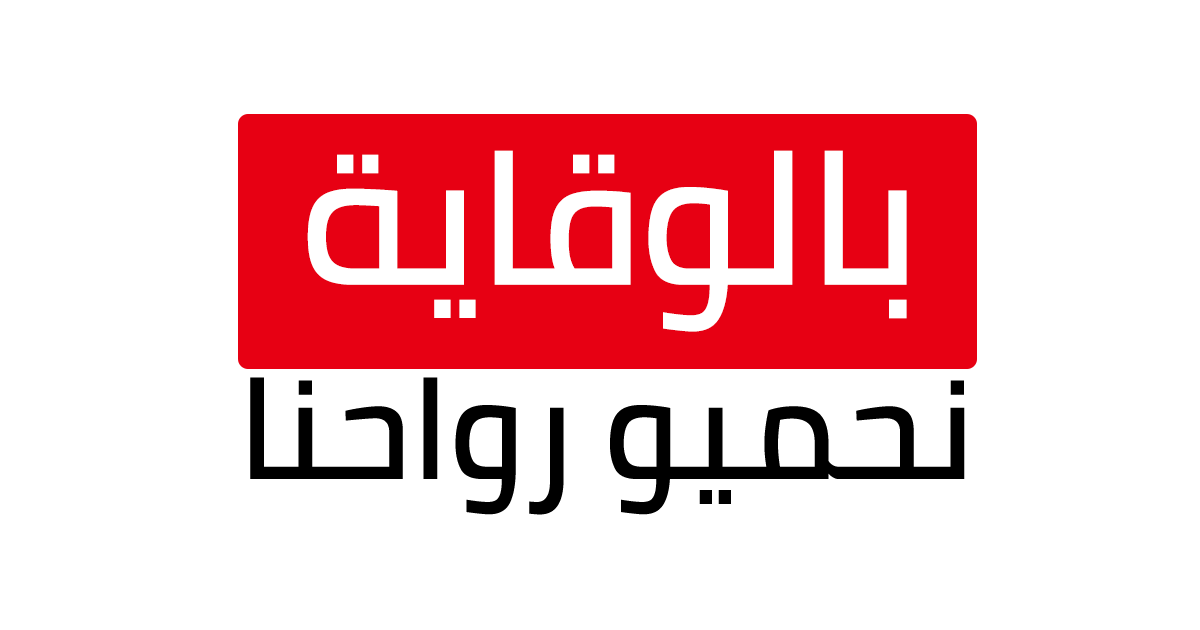Actualités
A success story: Being hateful online, the new way to reach the crowds
Published
5 ans agoon
[simplicity-save-for-later]
It’s just a picture, it’s just a meme, it’s just a video, it’s just some words we copy and paste…
Have you ever asked yourself who starts these?
Have you ever asked yourself what effect a simple “share” on Facebook or a like on “Instagram” or a retweet on “twitter” can have on someone on the other side of a broken screen? Or what’s behind it?
It’s okay to upload offensive content, as long as it gets you several “Haha” reactions or makes you part of a trend you may not believe in at the end of the day.
Hate speech is a global phenomenon.
And lately, especially during the elections’ campaign, we’ve all seen how the Tunisian people took it to a whole new level..
I’m not going to give you examples, I’m sure your Facebook feed can do the work, but there are some fundamental points that should be highlighted regarding the issue.
- What is online hate speech?
The Council of Europe defines hate speech as “All forms of expression which spread, incite, promote or justify racial hatred, xenophobia, anti-Semitism or other forms of hatred based on intolerance, including: intolerance expressed by aggressive nationalism and ethnocentrism, discrimination and hostility against minorities, migrants and people of immigrant origin. »
If this hate speech takes place on the virtual platforms such as Facebook, twitter.. , we are talking about online hate speech. It is important to distinguish it from speech that is merely distasteful.
These platforms constitute a fertile ground[1] for hostility that targets a specific group of people, while providing at the same time, even if not directly, a model/ permission/ social proof of what’s appropriate and what’s not.
Most of the time, this type of behavior is linked to a certain belief of a larger group that they are superior to the minorities attacked: Hate speech becomes a way of intimidating and silencing the opposite side based on intolerance expressed aggressively as the CE put it.
The resentment used in the dialogue is presented as what is “normal” and the justification is that the larger side of the community is using it. What makes it even worse is that because this doesn’t happen in a “face-to-face” conversation, people tend to ignore it when they encounter it on an daily basis or just go with the flow: if they are hating on a member of parliament (MP) because some inappropriate pictures of him were shared online and some girls reported being harassed by him, why wait for the court verdict? The online judgment already charged the innocent even if not proven guilty, yet!
In other words, we are speaking of a new form of normative social influence by conforming to the behavior of others in order to gain acceptance and to be liked, or simply not to be hated.
In addition to that, the speech used is not via a text or an article posted suddenly on social media causing a blow up, it is usually an accumulation of several posts/pictures/memes on an extended period of time allowing the idea of repulsing the target sink in the unconsciousness of internet users: in this case we speak of microaggression.
- The conflict between freedom of expression and hate speech
Freedom of exprssion[2], a marvelous term often used, yet rarely well understood.
When we talk about human rights, we tend to forget that some rights can’t be absolute. Freedom of expression falls into the category of limited rights[3], which means that at some point there is a red line that can’t be crossed. However, the limitations put must be fair and reasonable[4]. In this case, if there were no restrictions in the first place, the right itself loses its meaning.
Still, I personally find it absurd to think that there is a conflict between freedom of expression as the human right we all know about, and hate speech in general and online hate speech in particular. Consequently, hate speech is not a limit of freedom of expression.
This political and academic “freedom of speech vs. hate speech” debate that has been running for at least a decade, is based on a mix between hate speech being a way to attack someone (based on a difference), and expressing a disagreement between the two sides in an offensive way. Simply put: if I disagree with your idea, it’s okay for me to criticize “your idea”, not criticize “you” simply for having a different opinion from mine.
To be more precise, hate speech is a way of attacking a person or a group of people, not a way of attacking an idea.
Freedom of speech is one thing, including the freedom of disagreeing and criticizing. Hate speech is another.
As a consequence, it is not okay to justify such behavior with the argument of being free, because freedom has limits, and in the name of freedom it was never okay to attack a person.
- The consequences of Hate speech : crowd control
Now, the legitimate question you must all have in mind is: why is she giving so much importance to something she already described as “micro”? something that happens online, out of boredom or simply because people are having fun!
The truth is, it may be hard to notice, but this phenomenon is increasingly being used as a way to manipulate public opinion.
The reason why online platforms represent a perfect environment to shape public opinion is that social media today reaches larger audience than any other means of communication, I mean, even your grandmother has a Facebook account! What is even more interesting is that younger generations tend to use these platforms more, which makes the process of manipulation even easier, especially with teenagers who have a hard time distinguishing what’s right and what’s wrong. The act of manipulating may be something you can tolerate, however, when the wanted reaction takes place in the real world not in the virtual one, the matter needs to be taken seriously.
There is evidence that hate speech predicts violence[5], that groups more exposed to hate speech are more likely to commit suicide, and that it causes what scientists call a ‘dehumanization effect’[6] which makes it easier for us to justify suffering and harm caused to another human being.
By stereotyping a targeted group, portraying them as dangerous/wrong and several other negative adjectives, minorities that refuse such behavior are kind of forced to be silent because acting on their refusal leads to the hate targeting them alongside the victims of online hate dialogues. I don’t think any of us defended someone being attacked for posting about controversial issues, or some content that simply was not tolerated in our Tunisian society, because we got used to the behavior and the attitude itself, and that is exactly what dehumanization is all about.
Put this way, online hate speech violates the right to safety that including psychological and physical safety.
There is social proof today, that online hate speech plays an important role in shaping the political arena: never forget that the 2011 itself started online.
And with the lack of the judicial framework regarding the virtual spaces in general, I think we all should start thinking twice before joining a group on Facebook or retweeting a trending post on twitter especially in times of distress because what we contribute in today, is tracing the outline of our future.. So, will we stop the hate and spread love?
References:
[1] Expression used by Dr. Katarzyna Bojarska
[2] This right guaranteed by several national laws (exp: Article 31 in the Tunisian constitution of 2014) and international laws (the most famous being the Article 19 of the International Covenant on Civil and Political Rights)
[3] There are three categories : absolute, limited rights, qualified rights
[4] Article 49, tunisian constitution
[5] Susan Benesch, Harvard associate professor and founder of Dangerous Speech Project, studies how, what she refers to as ‘dangerous speech’, can incite mass violence.
[6] Science backs up the idea that speech can cause deeper wounds at both societal and personal levels than hurt feelings. Neurological and sociological research has proven that hate speech leads to ‘a dehumanizing effect’ which lessens our empathy for other people. A 2015 review of a number of studies by a lawyer and a neurology professor, leads them to hypothesize that: the components of our brains which produce empathy respond best when we witness the pain or suffering of people we consider to be on the same level as us. When we dehumanize people, or see them as a cultural ‘outgroup’, we are less moved by their suffering. An extreme form of this is violence targeted against a specific group, but it also makes us more likely to tolerate and less likely to be disturbed by denial of the rights we ourselves take for granted.
Articles similaires
Actualités
La convalescence sanguinolente palestinienne
Published
7 mois agoon
11 octobre 2023 [simplicity-save-for-later]
Je me suis réveillée le matin sur des conciliabules et des papotages mais aussi sur une flopée de posts diffusés sur toutes les plates-formes qui décortiquent cet évènement saccadé mais épique et parfaitement légitime émis de la part de la bande de « HAMAS » qui déclenche une opération militante inopinée nommée « le déluge de L’AQSA » contre Israël.
Finalement Palestine est entrée en lice ,avec une telle témérité et une telle audace, contre ces crapules vermines et effrontés qui ont empoisonné et détérioré, pendant plus d’un siècle, la terre palestinienne sacrée, qui ont assassiné implacablement ses Hommes, qui ont violé férocement et hargneusement ses femmes, qui ont orpheliné, sans faire quartier, ses enfants, qui ont piétiné les droits, qui ont dévalisé le territoire ,incinéré les corps ,étranglé la joie, désagrégé la société, malmené et pulvérisé les âmes .
Ces créatures diaboliques, sataniques et de nature spectrale ,qui donnent des haut-le-coeurs et qui se sont accaparés, sans vergogne, du territoire palestinien pour le salir et l’user jusqu’à la corde . Ces pestes ,au paroxysme de cruauté et de barbarie ,qui ont momifié les êtres et disséqué les âmes doivent être torturés ,violentés ,persécutés et évacués hors de cette terre bénie ,hors de ce pays de cocagne vers la poubelle des vices , vers l’enfer. Et pour ceux qui considèrent que c’est inhumain de rudoyer les israéliens et notamment ceux qui sont des enfants languides et vulnérables , jetez un œil sur le nombre incommensurable de meurtres des enfants palestiniens chaque jour.
Quant aux pays arabes collatéraux ,qui ont fait preuve d’une félonie revêche et d’une lâcheté burlesque à un certain moment ,on espère qu’ils cessent de pioncer ,qu’ils se réveillent ,qu’ils se ligotent ,s’unissent et s’entraident pour donner un coup de main à leurs confrères et faire montre d’au moins un tantinet de soutien et de souciance vis-à-vis de ce nouveau « maelstrom diluvien » dans lequel plonge notre monde et qu’on souhaite arrivera à secouer les palestiniens pour ne plus être endoloris et les faire émerger de leur situation piteuse ,miteuse et disetteuse .On espère également que la patrie palestinienne à laquelle nous appartenons ,soit exorcisée et émancipée et qu’elle se débarrasse de l’hégémonie irrépressible d’Israël et ses alliés. Le temps est venu d’évacuer ces démons et de récupérer les droits violés . Le temps est venu pour s’évertuer ,se triturer, se dépenser et s’efforcer afin que notre second pays demeure en paix et en pleine sécurité et stabilité.
Je dis ces mots en sanglotant avec une immense effusion de sentiments puisque la cause palestinienne réside aux tréfonds de notre être qui prescrite en voyant Palestine s’émietter. Que Dieu soit à vos côtés nos chers confrères. Que ce combat sempiternel et exténuant s’achève par la gloire et le bonheur dans leur plénitude, Amen
Ecrit par : Wissal Missaoui






Share your thoughts